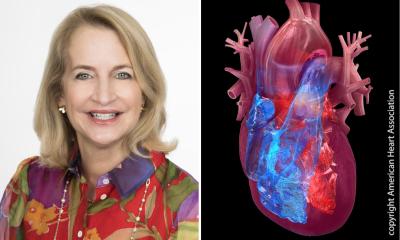Cigarettes on Sale on the Internet
The European Society of Cardiology comments on media reports last week that France is preparing to authorise the sale of cigarettes on the internet, to conform to European rights. Although Budget Minister Eric Woerth denies that this is the intention, the news is disappointing given the drop in heart attack rates following last year´s smoking ban.

ESC spokesperson Professeur Ph.Gabriel STEG (Université Paris VII, Centre Hospitalier Bichat-Claude Bernard, Paris) said : "While I understand that the alleged motive is that the French government needs to align itself with the European directive and the need to tackle the monopoly of cigarette retail in France, this move contradicts years of health policy to reduce tobacco consumption.
There is clear evidence that an increase in tobacco retail price and restricted access to cigarettes have led to less people smoking, with important health benefits. The government needs to take action to continue its previous policy which tackled smoking as an effective way to improve public health."
Daily financial newpaper Les Echos broke the news on 14 October, stating that the French government would propose the idea to Parliament in mid-November. Cigarettes would be sold at retail prices in France, to prevent price undercutting on the internet. MP Eric Woerth denied that these are the government’s aims, stating that "tabacco products are unique as they are directly involved in public health policy ; there are no plans to open this sector to a different type of sales market," as reported on 14 October by Le Monde.
A wave of smoking bans through Europe and the USA during this and last year has led to substantial reductions in heart attack rates, according to a study published last month in Circulation, the journal of the American Heart Association (1). The analysis pooled 13 studies from regions in North America, Italy, Scotland and Ireland and found a consistent reduced risk of hospitalisation for heart attack (acute myocardial infarction, AMI) of 17% one year after implementation of the law. The investigators found that heart attack figures fell by 36% during the three years following the ban.
Commenting on the Circulation meta-analysis for the European Society of Cardiology, spokesperson Professor Joep Perk from Oskarshamn District Hospital in Sweden said: "First, what the analysis shows is that the harmful effect of second-hand smoke is much greater than we first imagined. It also shows that the benefits derived from the anti-smoking legislation continue over time in a linear direction.
At the public health level the results strengthen the case for anti-smoking legislation in all jurisdictions. There seems no reason why the EU should not now advocate strong legislation in all member states. Studies like these strengthen the case for preventive cardiology."
In the UK, an amendment to the government’s Health Bill has been proposed this month, which would outlaw cigarette vending machines in England, Wales and Northern Ireland.
The European Society of Cardiology together with other health institutions has continuously informed the public of the overwhelming evidence of the adverse effect of smoking on cardiovascular health. The European Guidelines on CVD prevention warn that smoking is responsible for 50% of all avoidable deaths and that smoking causes heart attacks at any age.
“Although cardiovascular diseases are very complex in nature and due to many causes, smoking is one of the major contributors and smoking bans have certainly caused a reduction in coronary events in Italy. This has been documented in an article published in Circulation (2) where the rate of reduction of coronary events was consistent with the pollution reduction observed in indoor public places. I believe that this is clearly confirming that prevention is not only a task for doctors, but also for society and politicians," explains Roberto Ferrari, President Elect of the ESC.
References:
1. Lightwood JM, Glantz SA. Declines in acute myocardial infarction following smokefree laws and individual risk attributable to secondhand smoke. Circulation 2009; CIRCULATIONAHA/2009/870691
2. Circulation. Effect of the Italian Smoking Ban on Population Rates of Acute Coronary Events Circulation published online Feb 11, 2008; Zuccaro and Carlo A. Perucci Giulia Cesaroni, Francesco Forastiere, Nera Agabiti, Pasquale Valente, Piergiorgio
20.10.2009





